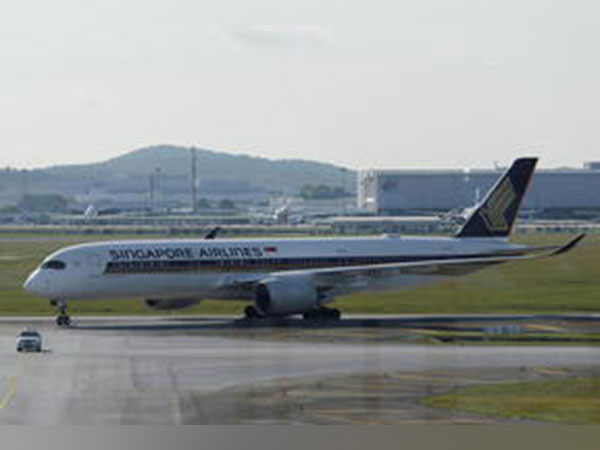
Singapore: The Singapore Airlines Group (SIA), co-owner of Indian carrier Vistara, reported its highest ever first-quarter operating profit of SGD 556 million last week (USD 403 million) on "surging passenger demand". It is the second highest quarterly operating profit in the airline's history.
This is after it scraped into positive territory with a SGD10 million (USD7.2 million) profit for the second half of the last financial year when it reported its full year earnings in May. For the first half of the same fiscal year, it reported an operating loss of SGD620 million. SIA's financial year is from April to March.
The SIA Group recorded a first quarter net profit of SGD370 million (USD268 million), versus a SGD210 million loss in last quarter of the prior financial year, an improvement of SGD 580 million. The airline attributed this to better operating performance which grew SGD623 million, as well as the absence of SGD66 million in non-cash impairment charges, which was partially offset by the tax expense incurred versus a tax credit last quarter of SGD95 million.
Lower share of losses of associated companies like Vistara also improved its performance by SGD25 million.
SIA achieved the outstanding quarter by carefully calibrating its response to the pandemic and preparing itself for the pickup in demand.
In a statement, SIA said," The SIA Group has proactively reviewed all aspects of our operations since the start of the pandemic, ensuring that the entire organisation is ready to rapidly respond to changes in the operating environment.
Singapore Airlines and Scoot have been among the first carriers to launch services and start sales to points served out of Changi Airport since restrictions began to ease in September 2021. Group capacity ramped up from an average of 47 per cent of pre-pandemic levels in the fourth quarter of FY2021/22 to 61 per cent in the first quarter of FY2022/23, allowing it to capture the significant pent-up demand."
Unlike in Europe where airlines had to cut flights to manage travel demand, SIA is increasing the number of flights.
With travel demand picking up, the industry in general is finding itself in a situation where it is unable to hire and train workers fast enough after letting go thousands of workers during the pandemic. It is also unable to bring aircraft that were mothballed back into service fast enough.
Earlier in July, British Airways in a statement to NBC News, said it was cancelling 10,300 more short-haul flights until October end. It added, "British Airways will cut more flights during the crucial summer holiday months, as airlines and airports across Europe struggle to keep up with strong post-pandemic demand from holidaymakers. The whole aviation industry continues to face into significant challenges and we're completely focussed on building resilience into our operation to give customers the certainty they deserve."
Similarly, KLM and Lufthansa also released statements to its customers saying that they will have to cut flights in order to ensure reliability and certainty of service.
This is due to labour shortages not only at the airlines but partner service providers at airports.
Lufthansa in its statement said, "As the Northern Hemisphere summer begins and with global travel restrictions now almost all lifted, everyone involved in aviation worldwide is reaching almost daily the limits of the resources that are currently available. And the ramp-up of the complex air transport system from almost zero to now almost 90 per cent is clearly not proceeding with the reliability, the robustness and the punctuality that we would like to offer you again."
Dutch airline KLM said," Work pressure at the airport is currently relentless as Schiphol and KLM are both faced with staff shortages. KLM's measures are intended to restore operational stability, thereby relieving pressure on staff at Schiphol and KLM. Through 28 August, we will cancel 10 to 20 return flights to European destinations every day."
The reduction of flights in Europe and soaring demand has resulted in airfares skyrocketing.
A search for flights in August on the airline websites showed that a return economy ticket from Singapore to Munich on Lufthansa costs USD1,600 whereas an SIA ticket from Singapore to London costs almost USD3,000. These used to cost about USD900 prior to COVID.
This has benefited the better-prepared Singapore Airlines which is busy adding flights to its network.
In its statement accompanying the financial results, it said that SIA and low-cost subsidiary Scoot are adjusting their networks in the Northern Winter operating season (30 October 2022 to 25 March 2023). SIA will increase services to points across Japan, restore its Indian network to pre-pandemic levels, add more flights to Los Angeles and Paris, and continue its direct services to Vancouver. Scoot will launch non-stop services to Tokyo (Narita) and Osaka, as well as add more flights to Bangkok, Cebu, Manila, Seoul and Surabaya. Group capacity is projected to go up to around 68 per cent of pre-pandemic levels by September, and around 76 per cent by the December.
Earlier this month, SIA had announced that it plans to progressively restore all its flights in India to pre-pandemic levels by the end of October. It will gradually increase its flight frequency and operate 17 weekly services to Chennai, up from the current 10 flights per week. Kochi services will go up to 14 times weekly, up from the current seven flights per week. Bengaluru services will go up to 16 times weekly, up from the current seven flights per week.
SIA expects travel demand to remain robust in the near-term and forward sales to stay buoyant for the next three months up to October 2022.
It however warned that, "Inflationary pressures including elevated fuel prices remain a concern. Interest rate hikes and slowing economic growth in many countries around the world, including the SIA Group's key markets, are risk factors to passenger travel recovery and air cargo demand which we are monitoring closely."